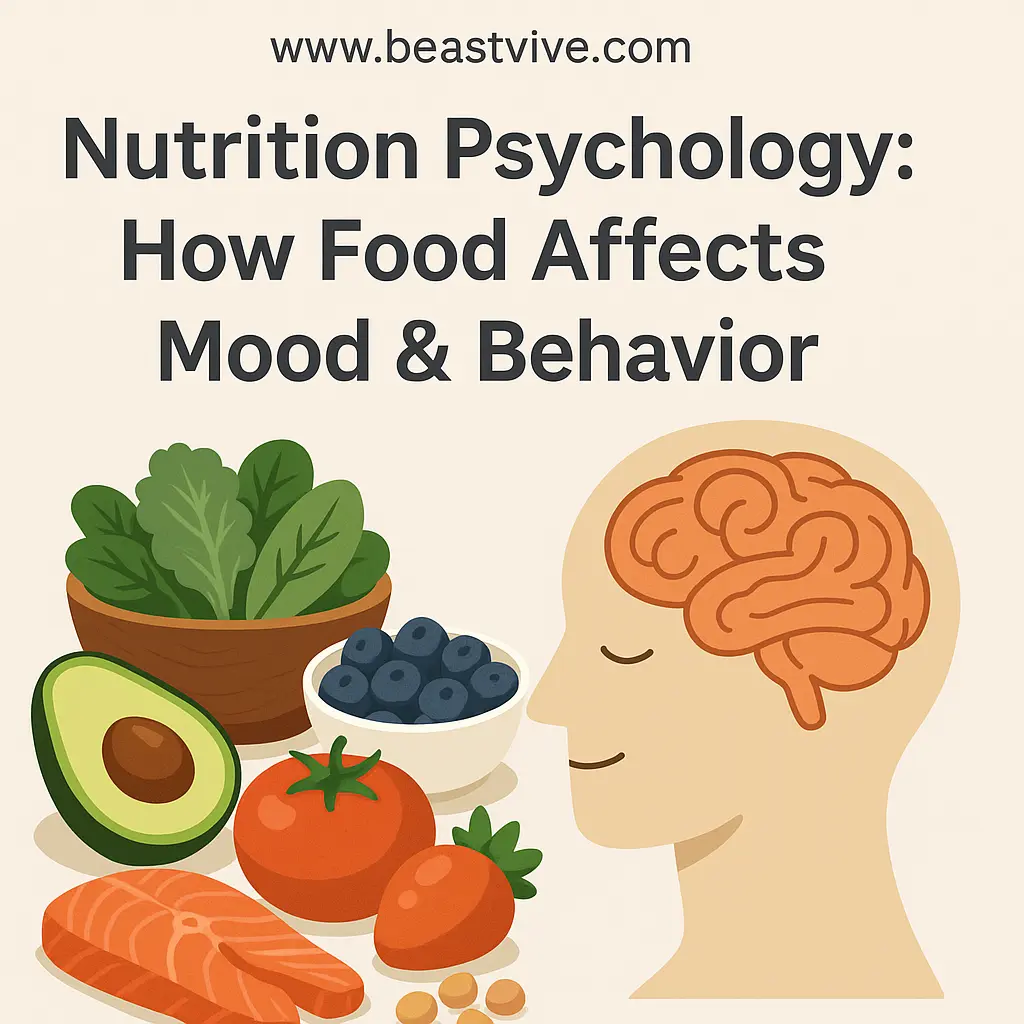
Have you ever noticed how a sugary snack can give you an instant mood boost but leave you sluggish later? Or how a balanced meal makes you feel calmer and more focused? This is the fascinating field of nutrition psychology — the study of how food directly influences our emotions, thoughts, and behavior.
Modern science is increasingly proving that our diet is not just about physical health — it also plays a critical role in mental well-being. From the gut-brain connection to nutrient-driven neurotransmitters, what we eat shapes how we feel.
1. The Gut–Brain Connection
Your gut and brain are in constant communication through the gut–brain axis. Inside your digestive system lives a community of trillions of microbes called the gut microbiome.
- A healthy microbiome helps produce neurotransmitters like serotonin (the “happy hormone”) and dopamine (the “motivation chemical”).
- An imbalanced microbiome caused by poor diet (too much sugar, processed food) can lead to anxiety, irritability, or brain fog.
Takeaway: Eating fiber-rich fruits, vegetables, fermented foods, and probiotics supports better mental health.
2. Nutrients That Influence Mood
Certain nutrients have a direct effect on brain chemistry:
- Omega-3 fatty acids (found in salmon, walnuts, flaxseed) → reduce depression & improve memory.
- B vitamins (whole grains, spinach, eggs) → support brain energy and reduce stress.
- Magnesium (dark chocolate, nuts, leafy greens) → calms the nervous system.
- Tryptophan (turkey, bananas, dairy) → builds serotonin for improved mood.
Tip: Instead of supplements, aim for a balanced whole-food diet to naturally nourish your brain.
3. Sugar, Junk Food & Emotional Rollercoasters
Processed foods and refined sugars may provide temporary comfort, but they can also cause:
- Blood sugar spikes → irritability, mood swings.
- Inflammation in the brain → linked to depression.
- Cravings and addictive eating behaviors.
Fact: Studies show people on a Mediterranean diet (rich in vegetables, healthy fats, and whole grains) are up to 30% less likely to develop depression compared to those eating Western diets.
4. Food & Behavior: The Psychology Side
- Children who consume too many processed snacks show hyperactivity and poor focus.
- Adults who eat nutrient-dense meals tend to report higher productivity and emotional stability.
- Emotional eating often becomes a coping mechanism for stress, leading to a cycle of guilt and more stress.
5. Practical Steps to Eat for a Better Mood
✅ Start your day with a protein-rich breakfast for stable energy.
✅ Include colorful vegetables in every meal (variety = wider nutrients).
✅ Drink enough water to avoid dehydration-related fatigue.
✅ Reduce caffeine if it worsens anxiety.
✅ Keep a food & mood journal to track which meals make you feel better.
Nutrition psychology teaches us that food is not just fuel — it’s emotional medicine. By eating with mental wellness in mind, you can boost mood, reduce anxiety, and even sharpen focus. Next time you feel low, instead of reaching for junk food, try a nutrient-dense snack — your brain will thank you.
